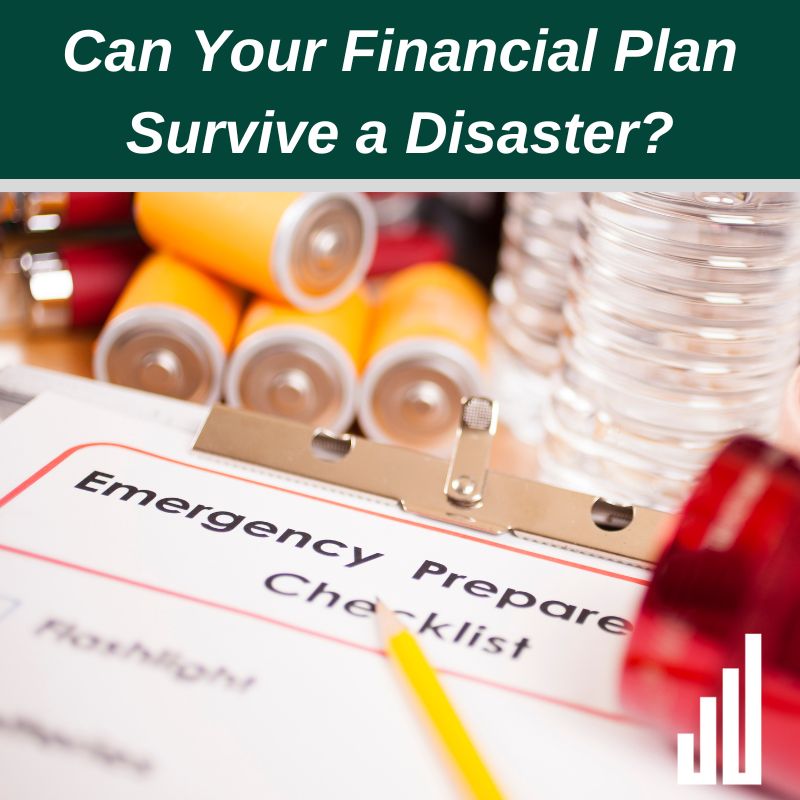The headlines have been somewhat alarming lately; it seems as if there is an overarching potential disaster waiting just around the corner. For those of us that did not live through the cold war, the daily threat of nuclear winter is a touch overwhelming. Throw in catastrophic hurricanes, tornados, etc. and suddenly you may find yourself googling MRE rations and Iodine pills. How do we financially prepare for things like a total property loss? Preparing for a nuclear event from a planning perspective is in some ways impossible. If you are hiding in your basement as bombs fall, the last thing that will matter is your stock portfolio. There are certain measures though that may make you feel more prepared for the unplannable.
Factor in emergency supplies to your monthly household budget. With inflation escalating and the cost of everything on the rise, supplies such as extra water, gasoline, and food supplies for an emergency can add up. Consider factoring in an emergency supplies category to your weekly or monthly shopping. Look for good values and buy things on sale, and think about what you can realistically afford to purchase. Basic medical supplies can also be costly, or an extra few months’ worth of prescription medication. Like so many other things, this is a balancing act. Do not go into debt planning for something that may never occur but you may find your life is saved by that extra few gallons of water you bought. Higher ticket items like a generator may require greater planning. Do not hesitate to discuss these costs with a financial planner and seek guidance about what is realistic in your individual situation.
Prepare a go bag and make sure you have copies of important documents and papers. Obviously, things like birth certificates and passports are important here but you should also consider keeping copies of insurance policies in a bag that is easy to access if you have to evacuate your home. For example, if there is a hurricane and you need to evacuate, you should anticipate it may be weeks before you can access your home. The internet or cell networks may also be down, so having paper copies for your documents may turn out to be useful in an emergency. Also, consider keeping a copy of the deed to your home. You never know in the event of a catastrophic event how useful it would be to have these sorts of records on hand.
Cash, gold bars, precious gems? What is actually useful in event of a total collapse of civilization is impossible to know. Water may become a hot commodity. In realistic situations where there is a natural disaster and a prolonged power outage, it would be useful to have cash on hand. How much may depend on your unique situation but think about having enough that can cover you for a few weeks of supplies(food, gasoline) until power can be restored. Currently, in some ways cash is almost obsolete. Remember, if there is no power and no cell networks there is no apple pay. You may find yourself very grateful you have that $500 in your sock drawer. It is also important to make sure you have an emergency fund to cover three-to-six months of expenses should you find yourself unable to work.
Coming out of a major hurricane season, it brings some good real life lessons about the actual cost of owning a second home or losing all of your possessions. Always make sure your insurance policies are up to date in regards to your personal property and real property. Flood insurance is often hard to obtain. Obtaining insurance policy payouts and federal assistance monetary relief for damages from disasters may be a lengthy process. Can you afford to get work started on your home until these policies payout? Remember values for personal property depreciate. Can you actually afford new furniture, clothes etc. Especially in cases of a second home purchase, you should consider these costs.
Overall, while we cannot truly prepare for a catastrophic event mentally or financially, we can aim to insulate ourselves and take small steps to feel more prepared. If you are concerned, your finances are overextended and you are not prepared to withstand a disaster or total loss, it is never a bad idea to rework your financial plan for such an event. Discuss how you may cover these real costs with a financial planner. Just think, can your financial plan withstand the force of a hurricane?


